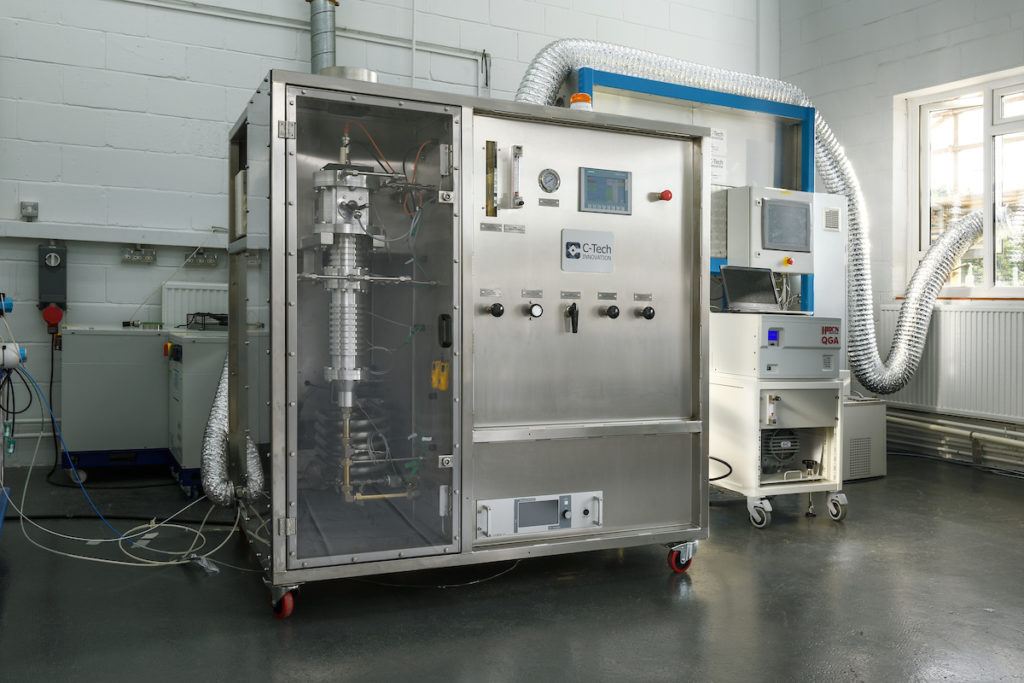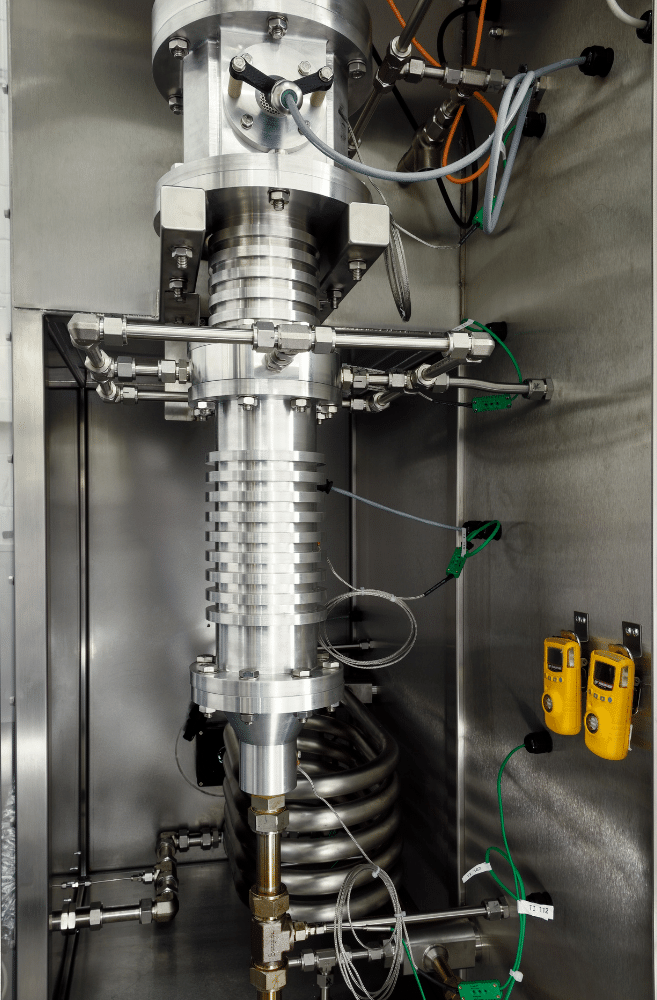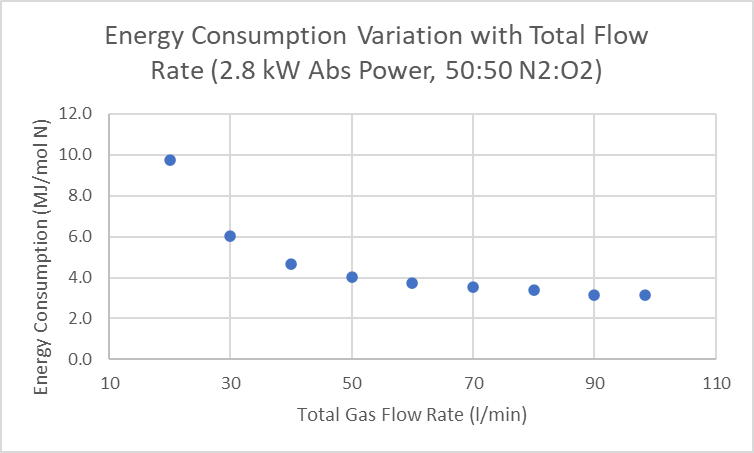CASE STUDY
Outline: Development of an instrumented 6 kW plasma reactor for the study of plasma assisted gas reactions.
Industry: Chemical Manufacture
Location: Capenhurst, UK
Publish Date: October 2022
Introduction
Our atmospheric pressure microwave plasma technology was used to study a plasma assisted reaction between nitrogen and oxygen to generate nitrogen oxides. The work involved the development of instrumentation to characterise the reaction, and a series of experimental trials.
Our goal was to create a research tool suitable for the accurate measurement of the yield and energy efficiency of gas phase plasma assisted reactions.
Energy efficient gas phase plasma assisted reactions are significant to the drive towards low carbon industrial processes.
Background
This work is part of the development of our atmospheric pressure microwave plasma technology, intended as an R&D tool for the study of plasma assisted gas phase reactions. The reaction between nitrogen and oxygen was chosen because of its relevance to the manufacture of nitric acid and ammonium nitrate.
The use of an electric arc plasma for the reaction between nitrogen and oxygen was the basis of the Birkeland-Eyde process for the manufacture of nitric acid, a part of the original process for the synthesis of ammonium nitrate before the advent of the Haber and Ostwald processes.
The present need to reduce fossil fuel use in chemical manufacture means that electrical processes like plasma assisted gas reactions are once again of interest, and future applications of our microwave plasma technology will include the production of ammonia and other materials.
Plasma assisted reactions offer the possibility of using renewable electricity to provide the energy source for the manufacture of these materials.
Our Approach To The Work
We used our 6 kW atmospheric pressure microwave plasma technology with:
Phase 1: Installation of calibrated measuring devices to monitor key process parameters and outputs.
- Measurement and control of gas flow rates using calibrated mass flow controllers
- Measurement of supplied and absorbed microwave power
- Measurement of overall electrical energy consumption
- Continuous measurement of the plasma exhaust gas composition using a mass spectrometer
Phase 2: Experimental program that involved varying process parameters and measuring process yield.
The Results
Baseline data showed stability of plasma operation and measurement.
The influence of the following parameters on process yield and efficiency were quantified:
- Plasma gas flow rate
- Plasma gas composition
- Microwave input power
- Length of plasma chamber
- Quench gas flow rate
- Reproducible measurement of key parameters
- The conversion efficiency of electrical power to microwave power was 64%
Graph shows the microwave power consumption in megajoules per mole of reacted nitrogen as a function of total gas flow rate
Our 6kW Plasma Technology
Suitable for use as a research tool for the accurate measurement of field and energy efficiency of gas phase plasma assisted reactions.

Atmospheric pressure microwave plasma technology
- Vorticular flow stabilised plasma contained within a quartz tube Microwave generated plasma
- Variable microwave power up to 6 kW
- Electrode ignition
- Multiple gas capability
- Variable geometry plasma chamber
- Exhaust gas cooling coil
Applications
This developmental work has enabled us to enhance our proof of concept capabilities in this area, we successfully created a research tool suitable for the accurate measurement of the yield and energy efficiency of gas phase plasma assisted reactions.
The Plasma 6kW instrument is suitable for experimental investigations in the field of:
- Gas phase plasma assisted reactions
- The generation of nitrogen oxides or ammonia
- Nitrogen cracking
- Solid-gas plasma assisted reactions
- Surface treatment of particles
- Coatings
- Waste Gas Treatment
- Destruction of VOC and other pollutants
Are you looking for a partner to help with proof of concept and feasibility studies?
At our site in Capenhurst, Chester we have our own fully equipped general purpose chemical laboratories. Our analytical capability includes HPLC, GC-FID, GC-MS, MP-AES,UV-Vis, and a Quantitative Gas Analyser.
Our work spans laboratory scale feasibility studies up to full scale equipment design, build and commissioning of plant at your site. We have a multi- disciplinary team including project managers, process scientists, mechanical, electrical and control engineers. We deliver solutions to the most challenging technical briefs and we work with customers worldwide.
+44 (0)151 347 2900
info@ctechinnovation.com
Request a Callback


